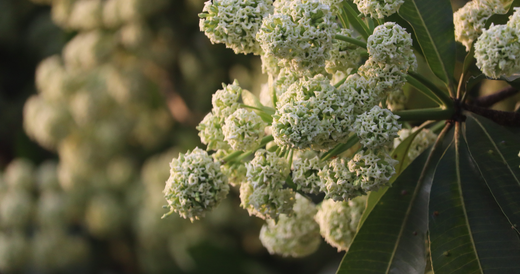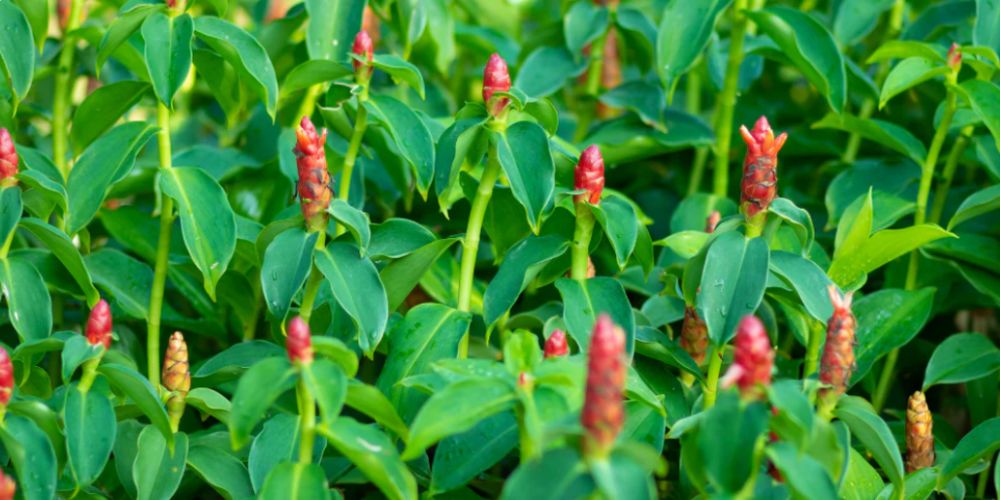
Chitvan [Dita] Guide: 6 Benefits, Nutrients & Usage
What is Chitvan Herb?
English Name: Dita
Hindi Name: Chitvan
Sanskrit Name: Saptaparni
Latin Name: Alstonia scholaris
- Saptaparni is an evergreen tree of medium to large size, characterised by a dense crown and a straight cylindrical bole.
- Native to India, this species has extended its presence to China, South and Southeast Asia, and Australia.
- Widely cultivated as an ornamental plant, Saptaparni, despite its toxicity, has traditional applications in medicinal practices for various ailments.
- Chitvan is particularly recognised for its efficacy against malarial fever. This evergreen tree has been historically employed to address a spectrum of health concerns. Its milky sap has been utilised since ancient times for ulcer treatment.
10+ Evidence Based Advantages of Chitvan Herbs or Plant
Chitvan Health Benefits

Source: Canva
The popular health benefits of chitvan are as follows:
- For diarrhoea, it is recommended to consume bark decoction twice daily.
- Ingesting bark powder before bedtime is advised for indigestion relief.
- Arthritis may find relief with a decoction of the roots.
- Bark powder is suggested for oral ingestion in cases of slimy stools.
- Regular consumption of an infusion of bark powder helps combat fatigue.
- Crushed roots, taken with hot water, can aid in fever reduction.
- Chitvan acts as a dewormer for the digestive tract, and root powder addresses ascariasis.
- In cases of congestion and cold, root powder with warm water can help expel mucus and excess Kapha.
- A poultice made from milky sap and bark paste applied topically alleviates discomfort in rheumatism and headaches.
- As an aphrodisiac, the decoction of seeds can be consumed with water.
Chitvan for Respiratory Health
Alstonia scholaris have been linked to possible respiratory benefits. It has long been used to treat respiratory ailments such as asthma, bronchitis, and cough.
Chitvan for Antimalarial Properties
According to some research, chemicals discovered in Alstonia scholaris may have antimalarial characteristics. It has been used in traditional medicine to treat malaria symptoms.
Chitvan for Antibacterial and Anti-inflammatory
The tree's bark is said to have antibacterial and anti-inflammatory effects. It's used in traditional medicine to treat a variety of infections and inflammatory diseases.
Chitvan for Fever Reduction
Alstonia scholaris has long been used to treat fever. It is thought to contain antipyretic qualities that can aid in the treatment of febrile disorders.
Chitvan for Digestive Issues
The bark and other parts of the plant are used in traditional medicine to treat stomach disorders. It has modest laxative properties.
Other Plants
Nutritional Facts of Chitvan

Source: Canva
The tree contains a wealth of alkaloids and flavonoids. Key constituents of this herb, such as Echitenine, Ditamine, and Echitamine, serve as alternatives to the well-known medicine Quinine. Additional chemical components encompass Akuammidine, picrinine, strictamine, tetrahydroalstonine, angustilobine, and more. These compounds are utilised in addressing diseases associated with tridosha imbalance.
How Does Chitvan Work for Various Health Issues?
Saptaparni serves as a potent remedy for harmonising all three doshas. It functions as a cardiac tonic, enhancing heart health, and detoxifies the blood to address skin ailments. Improving digestive strength alleviates constipation, abdominal colic, and bloating. The herb effectively addresses abdominal colic and combats intestinal worms while promoting rapid wound healing.
Additionally, Saptaparni proves beneficial in managing bleeding disorders and asthma, contributes to diabetes treatment, and significantly enhances breast milk production in women. Its inclusion in Kashaya for post-delivery care aids in immunity, preventing fever and cold in new mothers.
Different Ways To Use Chitvan
You may use chitvan in the following ways:
- Infusions and decoctions
- Supplements in the form of tablets, capsules, powders
- Crushed bark or roots
Chitvan Facts and Myths
Learn the most common myths and facts on chitvan here:
3 Facts About Chitvan
- Chitvan is a name for the tree Alstonia scholaris, often known as the Indian Devil Tree.
- The bark, leaves, and roots of the Saptaparni tree have long been employed in Ayurvedic and other traditional medical systems.
- The name "Saptaparni" means "seven-leaved," alluding to the whorl of seven leaves at the end of each of its branches.
Other Plants
2 Myths About Chitvan
- Chitvan does not cause any allergic reactions
- Chitvan has a pleasant aroma
Growing Chitvan at Home
Growing Chitvan at home necessitates paying close attention to certain circumstances. Chitvan, if referring to a specific plant or herb, may need special cultivation. In general, pick a sunny area and well-draining soil. Purchase seeds or seedlings from reliable suppliers. Plant seeds at the optimum depth or transplant saplings with enough spacing.

Source: Canva
Watering on a regular basis is essential, as is allowing the soil to dry between watering sessions. During the growth season, fertilise as needed. Pruning can promote bushier growth. Harvest leaves or other plant components as required, but don't overdo it to keep the plant healthy. Care should be tailored to the individual needs of the Chitvan plant in question.
Where To Buy Chitvan
Zanducare is a renowned brand recognised for its diverse range of Ayurvedic products designed to enhance overall well-being.
Trusted Brands for Chitvan
Zanducare's herbal offerings stand out as top choices for embracing a holistic lifestyle. Each product harnesses the advantages of Ayurvedic herbs, ensuring a natural approach to well-being without any negative effects.
Conclusion
Finally, chitvan, also known technically as Alstonia scholaris, emerges as a versatile and respected plant in traditional medicine. Its long history, botanical value, and traditional usage highlight its relevance. Chitvan provides a comprehensive approach to health, treating everything from respiratory disorders to skin illnesses, digestive difficulties, and even fever reduction.
Its cultural importance, which is linked with mythology, contributes to its attractiveness. Chitvan continues to play an important role in fostering well-being as a new study reveals more about its potential advantages. Consultation with healthcare specialists, as with any herbal therapy, guarantees safe and effective use, recognising its role in the field of natural healing.
FAQs
1. What exactly is chitvan, and what are its traditional Ayurvedic applications?
Chitvan, technically known as Alstonia scholaris, is an evergreen tree with Ayurvedic therapeutic properties. It has traditionally been used to treat respiratory problems, skin illnesses, digestive difficulties, and fever. Its numerous uses highlight its function in overall well-being.
2. How does chitvan fit into everyday wellness routines?
Chitvan can be consumed in the form of herbal teas, pills, or tinctures. Consider steeping the leaves in hot water to make a delightful tea or including Saptaparni supplements into your wellness routine for possible health advantages.
3. When taking chitvan, are there any dangers or contraindications?
While it is typically safe, it is best to see a healthcare expert, especially if you are pregnant or have a pre-existing ailment. It is critical to keep an eye out for any negative effects.
4. What scientific study is now being conducted to support the therapeutic qualities of chitvan?
Recent research highlights the anti-inflammatory, antibacterial, and antipyretic effects of chitvan. Scientific research continues to investigate its potential advantages, bolstering its conventional use.
5. What kind of authentic chitvan goods are available, and where can one find them?
Authentic chitvan items may be acquired at respected herbal stores, Ayurvedic pharmacies, and internet natural remedy platforms. Capsules, powders, and herbal teas are common formats, enabling accessibility for a wide range of tastes.





